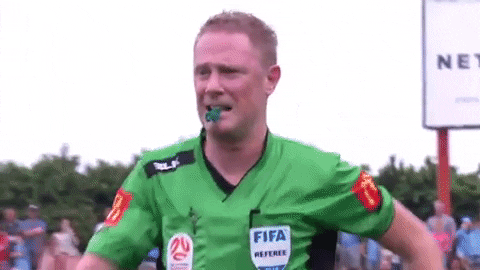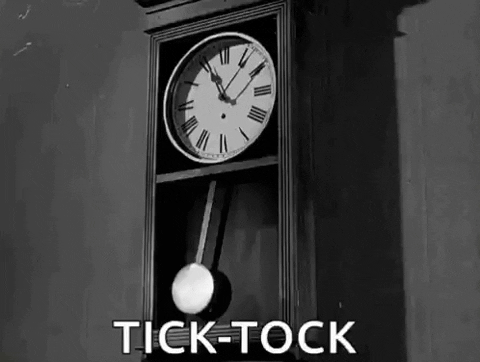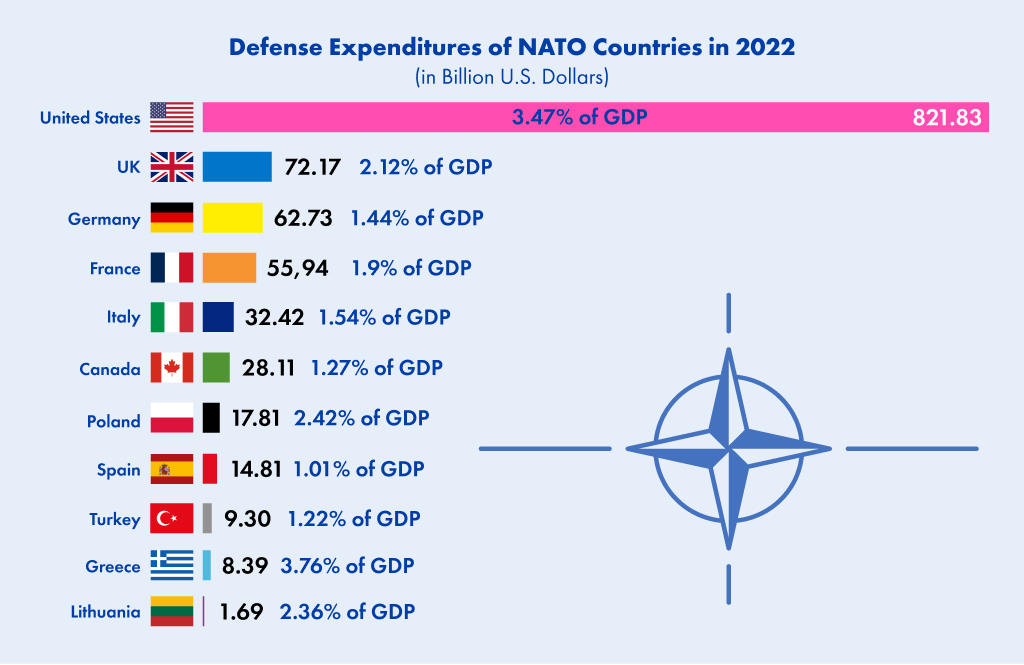Issue #117
Guten Morgen! Another weekend, another Krautshell! We’ve had a few bumps and bruises this week, as 3 out of 4 regular Krautshell contributors were bed-bound with illnesses, but we’ve come through to deliver you the insights you need. In the House’s View, Mats analyzes what lies behind China’s call for peace talks at the Munich Security Conference. For your further enjoyment, we dive into Chancellor Scholz’s bid to cozy up to India, how the German government can fill the leak that is the skilled labor market, and how one German industrial champion may be on the way out of the country. Finally, Szilvia gives her take on the European Commission’s decision to ban TikTok from corporate devices. As always, viel Spaß beim Lesen! Anna Christian Rhetoric vs Reality as Scholz visits India The German government misses few opportunities to stress the moral aspirations of its foreign policy, whether it be in pursuit of multilateralism, feminism or climate justice. To what extent it fulfills these aspirations is another question entirely (which we won’t cover here). Since the outbreak of the Ukraine war one year ago, Chancellor Scholz has combined hesitant material with enthusiastic moral support for the Kyiv government, supporting sanctions against Russia’s economy and criticizing sceptics of the West’s approach. This weekend he will meet Prime Minister Narendra Modi of India – one of the most important “sanctions sceptics” – and it will be interesting to see whether Scholz’s public rhetoric will survive impact with political reality. The reality being that Scholz wants Modi as a political and economic partner more than he cares about his “immoral” Russian policies. India plays a fascinating role in 21st-century geopolitics. A rising economic and military power, with profound importance for the Indo-Pacific region, it plays both sides of the current Sino-American conflict: When it comes to China, Modi has sought the proximity to Europe and the United States, while on Ukraine he has proved a reliable partner to Russia. In fact, the world’s largest democracy has massively upped its Russian oil imports and obtains most of its weaponry from Moscow. Scholz reportedly sees India as a “key state” in a future multipolar world and wishes to build closer relations with the world’s fifth largest (and most populous economy). But according to news sources, there is another, more realpolitik-oriented goal in mind: Germany’s ThyssenKrupp Marine Systems (TKMS) is pursuing a 5.2-billion-dollar submarine deal with New Delhi, which would in Berlin’s eyes help wean India off its reliance on Russian arms. This may not be in line with Germany’s peace-loving rhetoric, but it is certainly in line with its economic and geopolitical interests. We’ll keep you posted. The German Brain Gain Germany has been experiencing a skilled worker shortage in several industries, including hospitality, health, construction, and industry, for some time due to an aging population. In 2022, the Institute for Employment Research (IAB) found 1.74 million vacant positions throughout the country. To address this issue, the German government is trying all kinds of solutions from its bag of tricks. For example, the “Chancenkarte,” or opportunity card, which would use a points system to enable workers with the required skills to come to Germany more easily. Another issue: knowledge of the German language is a crucial factor if a non-EU citizen wants to get employment in Germany. This is one of the factors that drives skilled workers to English-speaking countries like the USA, Canada, Australia, the UK, etc. To combat this issue, the German government is considering making English the second official language at administrative offices in Germany. Having personally dealt with those dreaded forms for “Anmeldung” and “Ausländerbehorden,” this will be a blessing for new entrants – as unlikely as this will likely be. If an individual had to apply for a residence permit in November 2022, they would get a “Termin” by February 2023. Initially, it may seem like a long wait, but it’s important to note that there are others who are waiting longer than six months. After the work visa expires, there is a “golden period” of about a month where the applicant is in a state of limbo and unable to leave Germany. Technically, one can leave but then cannot enter again on that visa. This raises the question of whether the delay in the administration process is intentional, to discourage people from leaving Germany to work in other EU countries. Smart and sneaky way of keeping in the brain which has been drained from elsewhere. It’s possible that the administration is genuinely understaffed and requires more people to manage the huge influx of migrants, or it could be that this is a problem unique to Berlin and not other parts of Germany. Either way, changes to the system would be very welcome. BASF Bodes Ill for German Industry While the ongoing energy crisis has threatened many of Germany trademark industries, it is (you guessed it) the energy-intensive ones – especially automotive and chemical – that have been hardest hit. And among Germany’s vaunted manufacturing sector, one of the big players is BASF. It is the world’s largest chemical producer and employs 111.000 people in many countries, including almost 40.000 in its Stammwerk (main plant) in Ludwigshafen along the Rhine. Policymakers have long worried about the prospects of natural gas-intensive chemical industry, so BASF’s latest announcement may be less of a shock than a concerning development indicative of a wider German economic malaise. This week, BASF’s CEO Martin Brudermüller announced the layoff of 2.600 jobs worldwide – so far, so manageable. It was his further comments that ought to set alarm bells ringing in the Economics Ministry. Not only did BASF pay an additional 3.2 billion euros in energy costs last year (much of it in Germany), but the company sees its presence in Europe threatened by underlying structural factors. According to Brudermüller, “The competitiveness of the European region is increasingly suffering from overregulation”, and several chemical plants have already been closed as a result. Worse still, with BASF expecting a 30 percent drop in operating earnings this year, the company is expanding its business in … China. This is richly ironic considering the German government’s recent attempts to disentangle economically from the People’s Republic. BASF is a case in point of a once successful economic model under increasing attack. High taxation, regulation and massive energy costs (and not just since the Ukraine War) are putting pressure on the Mittelstand – Germany’s famed mid-sized companies – and the key manufacturing sector. The country’s export surplus has reached a twenty-year low, and recession fears have returned with yesterday’s surprise Q4 growth correction to -0,4 percent. If BASF is struggling, this bodes ill for many of the smaller companies that still generate much of Germany’s wealth. The months ahead look increasingly challenging. By Mats Post-MSC Reflections: Ain’t No Getting around China If you read our edition last week, you might have picked up on the fact that I was on the ground for the Munich Security Conference. First, the important part: I was able to eat and drink my weight in Schweinshaxe, Bretzel, and Helles that has been brewed for longer than most countries have been on the map. But in all seriousness, I was able to come away from the Conference with something more than just high cholesterol and heightened risk of heart disease. Updates from bilateral closed-door meetings, panel discussions, and the public main-stage discussions allowed me to take the pulse of international positions surrounding some very important global developments at the moment. Also, the happenings of next weekend caused me to think about what’s next. And what’s next, in my opinion, has everything to do with China. Ukrainian War: the Middle Kingdom Has Entered the Chat As I’m writing this piece, Russia invaded Ukraine exactly one year ago on February 24th, 2022. Unsurprisingly, Ukraine was THE topic of discussion at the MSC. Most interesting to me was hearing Wang Yi, China’s Top Diplomat, talk about how he and his country see the conflict. First – China, which has largely kept itself out of headlines regarding the war, is about to become a major player in this conflict. Xi Jinping and his trusted circle are slow and calculated when making any major decisions – and when they do make decisions, they’re all about the optics. We saw this in his approach to COVID restrictions: only when Xi had been elected as leader for life, and the population protested loud enough, he opened the floodgates from one day to the next. He was very opportunistic and positioned himself as the liberator who had heard the cries for freedom from the public. Keep this in mind for this next part. China’s Kumbaya Moment On Saturday, Wang Yi made a grand statement in his address to the main hall that China would be presenting a peace plan, which has now been released (check the link out for details, but it’s exactly what you would expect – a non-committal, grandly-worded position paper). China claims neutrality in the conflict, but the numbers speak for themselves – China’s overall trade with Russia hit a record high in 2022, increasing 30 percent from the previous year. Now, Russia is not performing as one might have expected, and China needs a plan B. Does China want peace between the two warring factions? Of course – China stands to gain economically from a cessation of hostilities. But Xi Jinping and Wang Yi know just as well as any Western leader that any agreement seeding Ukrainian territory will not be accepted in the current climate. So, there must be some second motivation behind this political theater. Being the first country to step forward and put a peace agreement on the table is China’s insurance policy. Should China decide to start arming Russia (which according to American intelligence might soon be the case), China can point to exactly these statements and pull the “we’ve tried everything else, and nothing worked” card. And to be honest, the US and its allies are making it a bit too easy for Xi and co. Seemingly before the words “peace agreement” even crossed Wang Yi’s lips, US and EU leaders denounced the plans as a farce. Tactically, this plays directly into China’s narrative of the Western allies being overly aggressive and having ulterior motives in the conflict (i.e. bringing Russia to its knees). As I said before, it’s all about the optics. China’s Going All In China has played its hand quite well, but it has also shown its cards. Before the MSC, China took a position of neutrality, virtually removing itself from the conflict completely. Now, the first, careful step has been taken in terms of involvement in the war – even if it’s still from a “neutral” angle. Hopes for a swift end are quickly disappearing, and China wants to speed things along. With the offer to broker peace, China now has a solid line of reasoning (domestically) for why it would want to involve itself in this conflict: the West adds fuel to the fire by delivering weapons, demonstrating its desire its stick its nose into every region of the world while China calls for an end to hostilities. To ensure the “imperial West” doesn’t succeed, China needs to defend its values of “anti-imperialism.” And ultimately, whether it’s next week or in a year, China will use this as its justification for supporting Russia militarily. What the West should do, in my humble opinion, is to beat China at its own game. Force Xi to back up his words with actions. Turn these grand visions into actionable plans. Offer to work together with China to broker peace talks and allow for the drafting of concrete proposals. I’m certain the façade will crumble when the rubber starts to meet the road – and it will become apparent that China is not willing to do whatever it takes (such as exerting more pressure on Russia) to reach an agreement. Then, we can at least we will see who stands on which side of the line in the sand. I truly wish that we could take China at its word when it claims it is committed to reaching a peace agreement. In fact, it would even be in China’s own interest to be the hero who made the impossible happen. But, knowing Xi Jinping, Chinese public statements can never be taken at face value. Therefore, it’s our jobs to read between the lines and give our best shot at figuring out what actually is happening. For all of our sakes: I really hope I’m wrong because otherwise we have a true World War on our hands. TikTok TikTok … BOOM! For the first time ever, the European Commission and the Council instructed their 35,000 employees to remove an app from their work devices. This measure hit TikTok not because of the questionable effects of this kind of platforms on the sound judgement and common sense of people. This ban is about sovereignty and an extremely tense geopolitical status quo. And why should European institutions take any risk of cyber breach with regard to untrusted digital communication companies in times of territorial war on European soil? The systematic rivalry between the West and China causes a general cautiousness towards Chinese players. It was just a matter of time to find a compliance issue serious enough to take action. The clock was tik-toking for this powerful platform. Maybe it is a coincidence that the TikTok ban comes right after the unsuccessful attempt of China offering to become a peacemaker in the Ukraine war. But it almost reads as a reiteration of the main message: We don’t trust you. And let’s not expect that to change soon. After one year of a terrible war in Ukraine and no serious sign of Russia giving up on its geopolitical position, Europe and the West is even more sensible for every move that China takes or fails to take. The time of simply ignoring facts and building on our common interests is gone. To come back to TikTok: Of course, this ban only concerns the devices of people in administration and social media platforms are (seemingly) not the basic building blocks of the economy, but the basic fear behind is: The Chinese state is spying on us and influencing our society in its political opinion building. This “appsolute” lack of trust has already an effect: Those Chinese companies who are world leaders in their technological field and actually carry the European economy’s growth (take batteries for example) encounter serious difficulties in Europe. So, even if I believe that TikTok belongs to the bin of your phone, the step comes with a cool breeze and many new questions. Issue #117


FIRST, SOME SOLID INTEL:
TAKE A BREAK, GIVE YOUR EYES A REST.
THE HOUSE’S VIEW:
LONG STORY SHORT:
WHAT’S ON OUR MINDS:





